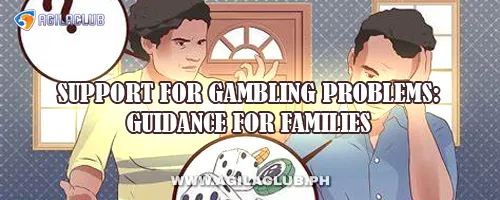
Gambling issues can strain relationships and deeply impact families. In the Philippines, where gambling is both a popular pastime and a growing concern, knowing how to talk to loved ones about gambling problems is essential. Here’s how you can support your family and friends effectively.
Understanding Gambling Problems

Before addressing the issue, it’s important to understand what gambling problems entail:
- Compulsive Behavior: Inability to control gambling habits.
- Financial Stress: Accumulating debts and financial instability.
- Emotional Impact: Increased anxiety, depression, and strained relationships.
Understanding these aspects is crucial when communicating about gambling problems with your loved ones.
Signs Your Loved One May Have a Gambling Problem

Recognizing the signs can help you approach the situation with empathy:
- Frequent Borrowing: Asking for money regularly.
- Secretive Behavior: Hiding gambling activities or lying about them.
- Neglecting Responsibilities: Ignoring work, studies, or family duties.
For a deeper understanding, check out our guide on Identifying the Signs of Gambling Addiction.
Tips for Addressing Gaming Problems with Loved Ones
Initiating a conversation about gambling can be challenging. Here are some tips for addressing gaming problems with loved ones to help you communicate effectively:
Choose the Right Time and Place
- Find a private and comfortable setting.
- Ensure there are no distractions.
- Approach when both of you are calm.
Use Compassionate Language
- Avoid blame or judgment.
- Express concern and willingness to help.
- Example: “I’m worried about how gambling is affecting you.”
Listen Actively
- Let them share their feelings and experiences.
- Show empathy and understanding.
- Avoid interrupting or offering unsolicited advice.
Communicating About Gambling Problems
Effective communication is key to supporting your loved one:
- Be Patient: Change takes time. Offer ongoing support.
- Set Boundaries: Protect your own well-being while helping them.
- Encourage Professional Help: Suggest consulting a counselor or joining support groups like AgilaClub.
Discussing Betting Issues with Family

Family involvement can make a significant difference:
- Educate Yourself: Learn about gambling addiction and its effects.
- Stay Informed: Keep up with resources available in the Philippines.
- Support Each Other: Maintain open lines of communication within the family.
For more insights, explore our article on Understanding Responsible Gaming: Importance and Guidelines.
Handling Betting Problems in Relationships
Gambling issues can affect romantic relationships deeply. Here’s how to manage:
- Open Dialogue: Share your feelings honestly.
- Seek Counseling: Professional guidance can help both partners.
- Create a Plan: Develop strategies together to address the problem.
When to Seek Professional Help
Sometimes, professional intervention is necessary:
- Persistent Issues: If gambling continues despite your efforts.
- Severe Impact: When it affects mental health or finances significantly.
- Support Groups: Organizations like AgilaClub offer resources and community support.
Programs like Effective Self-Exclusion for Responsible Gaming can provide structured support to help your loved one take the first step toward recovery.
Supporting Through Recovery
Helping a loved one recover from gambling addiction involves:
- Encouragement: Celebrate small victories and progress.
- Consistency: Be there consistently without enabling the behavior.
- Resources: Provide information on local support services and AgilaClub initiatives.
Learn more about Understanding Responsible Gaming: Importance and Guidelines.
Additional Strategies for Supporting Loved Ones
To further communicate about gambling problems, consider these additional strategies:
Promote Healthy Activities
Encourage your loved one to engage in activities that do not involve gambling. This can help divert their focus and reduce the urge to gamble.
Monitor Financial Transactions
Help manage their finances by monitoring transactions to prevent excessive gambling. This can be a practical step in mitigating financial stress.
Utilize Technology
Leverage apps and tools designed to help control gambling habits. Resources like Effective Self-Exclusion for Responsible Gaming can be beneficial.
Building a Supportive Environment
Creating a supportive environment is crucial for recovery:
- Open Communication: Maintain honest and open communication channels.
- Non-Judgmental Attitude: Approach conversations without judgment to foster trust.
- Encourage Professional Help: Reinforce the importance of seeking professional assistance.
Encouraging Responsible Gambling
Promote responsible gambling practices to prevent relapse:
- Set Limits: Help your loved one set financial and time limits for gambling.
- Educate on Risks: Discuss the potential risks and consequences of excessive gambling.
- Celebrate Milestones: Acknowledge and celebrate progress in their recovery journey.
For more tips, visit our article on The Importance of Responsible Gaming: A Bettor’s Safety Guide.
Conclusion
Addressing gambling problems with family and friends requires empathy, patience, and effective communication. By understanding the issue and utilizing available resources, you can support your loved ones on their journey to recovery. Remember, you’re not alone—organizations like AgilaClub are here to help.




